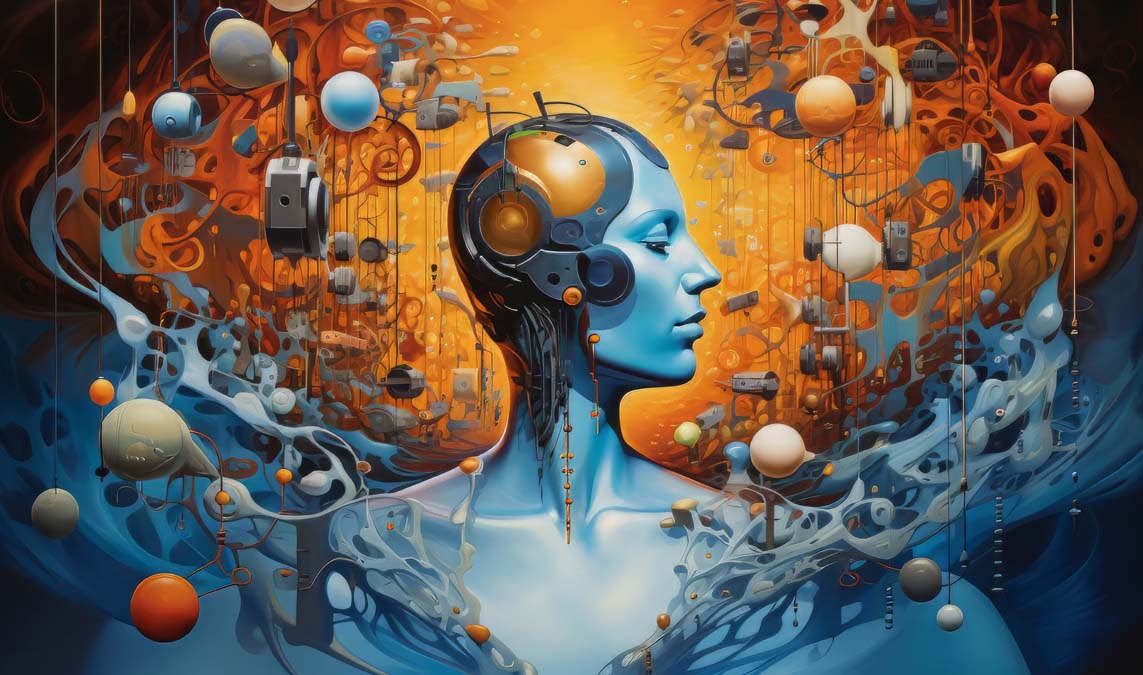Artificial Intelligence (AI) has reshaped industries, from healthcare and finance to transportation and communication. However, as AI technologies become more deeply embedded in our daily lives, they also raise serious ethical concerns. The AI ethical issue has become a central topic of discussion not just in academic circles, but also in policymaking, corporate strategy, and public discourse. These issues—ranging from data privacy violations to algorithmic bias and weaponization—are not confined to any one country. They demand a globally inclusive response rooted in mutual respect, transparency, and a unified commitment to peace.
Understanding the Core AI Ethical Issue
At its core, the AI ethical issue revolves around how AI systems make decisions, who they affect, and who is held accountable when things go wrong. For instance, biased data can lead to discriminatory outcomes in hiring tools or credit scoring systems. Surveillance AI can infringe upon human rights if used irresponsibly by authoritarian regimes. Furthermore, autonomous weapon systems powered by AI could destabilize global peace if not controlled under international agreements.
Despite the technological sophistication, AI lacks moral intuition. Thus, ethical frameworks must be carefully constructed to guide its deployment. This responsibility does not rest solely on developers or corporations. Instead, it must involve governments, civil society, academia, and international organizations working together.
A United Global Front is Essential
Because AI knows no borders, its ethical risks transcend national boundaries. Consequently, a fragmented approach to regulation is insufficient. The AI ethical issue calls for nations to unite in creating globally accepted standards and frameworks. Fortunately, we’ve seen positive movement in this direction. For example, the OECD’s Principles on AI, the EU’s AI Act, and the UNESCO Recommendation on the Ethics of Artificial Intelligence are major steps toward global AI governance.
Moreover, collaborations such as the Global Partnership on Artificial Intelligence (GPAI) and AI for Good by the UN’s ITU agency show that international cooperation is not just possible—it’s already underway. These initiatives bring together experts from various regions and backgrounds to address ethical concerns and propose actionable solutions.
Ethical AI Promotes Peace, Not Conflict
AI can either widen societal divisions or help bridge them. The outcome depends on how we choose to address the AI ethical issue. When AI is developed transparently and inclusively, it becomes a powerful tool for diplomacy, education, climate monitoring, and healthcare—ultimately contributing to global peace.
For instance, AI-driven platforms that promote multilingual education and cultural exchange can foster better understanding among nations. AI applications in environmental science help predict natural disasters, enabling countries to collaborate on relief efforts. These shared successes underscore how AI, when guided by ethical principles, becomes a unifying rather than divisive force.
Inclusivity: A Moral and Practical Imperative
An ethical AI framework must be inclusive of all voices, especially those from underrepresented communities and developing nations. Too often, AI models are trained primarily on Western data, leading to outcomes that may not reflect the realities of global populations. This digital imbalance contributes to both ethical and functional disparities.
To overcome this, we need open data-sharing agreements, capacity-building initiatives, and inclusive policymaking processes. Everyone—from indigenous communities in the Amazon to rural educators in sub-Saharan Africa—deserves to have their needs and perspectives reflected in the AI systems that affect their lives. Ethical AI cannot exist without global inclusivity and equitable representation.

Transitioning Toward Transparent AI
Transparency is another pillar of addressing the AI ethical issue. Black-box algorithms, where decision-making processes are hidden from users, contribute to mistrust and potential misuse. Transparent AI systems not only improve accountability but also foster global cooperation. When nations and companies share ethical best practices openly, others can learn, adapt, and avoid past mistakes.
Furthermore, transparency helps break down barriers between countries. It invites dialogue rather than secrecy and suspicion. For AI to serve as a bridge toward peace, we must commit to shared knowledge, open ethics, and responsible innovation.
Youth, Education, and the Ethical Future
Educating the next generation about ethical AI is essential. Students today will become tomorrow’s developers, policymakers, and users of AI. Therefore, integrating AI ethics education into school curricula worldwide ensures that future innovation is rooted in empathy and justice.
Global youth summits on AI ethics—supported by institutions like UNESCO or the World Economic Forum—can further amplify diverse voices. When young minds from every continent collaborate, they can shape an AI future that prioritizes justice, dignity, and peace over profit or power.
Bridging the Digital Divide
Another critical aspect of the AI ethical issue is the digital divide. Access to AI technology and its benefits remains uneven. While some nations rapidly advance in AI development, others struggle with basic internet connectivity. This imbalance threatens global equity and long-term peace.
To counter this, wealthier nations must invest in digital infrastructure for low-income countries. Moreover, international tech companies can partner with local innovators to create culturally relevant, ethical AI solutions. In doing so, they help level the playing field and reinforce global unity.
Conclusion: Ethical AI is Peaceful AI
The AI ethical issue is one of the most pressing challenges of our time, but it also offers one of the greatest opportunities for global unity. By working together—across borders, languages, and ideologies—we can create AI systems that promote fairness, preserve human dignity, and prevent conflict.
It is not enough to develop powerful algorithms. We must ensure they are governed by principles that reflect our shared humanity. Nations must continue to collaborate on ethical AI policies, support inclusive innovation, and build transparent systems that everyone can trust.
In the end, responsible AI is ethical AI, and ethical AI is the foundation of a more peaceful, cooperative world.








Add Comment